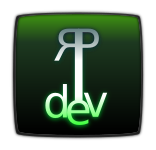Intelligent Playlist for Amarok: Notes for Developers
This article is aimed at developers and contributors who want to participate in the project.
Installing the Plugin from Git
The plugin is hosted at GitLab. The repository there always contains the most recent version of the plugin. If you plan to contribute to the project, it is strongly recommended to use that version.
Prerequisites
In order to get the plugin, you need git installed on your system. In the following text, we will assume that the git executable file is in your PATH, i.e. typing “git” in a terminal will start it. Additionally, you will need some tools, including make, grep, cat, sed, lupdate and lrelease. The two last come with the Qt 4 SDK, the other ones are typical Unix tools that are usually available on all Unix-like systems. For Windows, consider installing Cygwin to get hand on them.
Getting the Plugin
To get the plugin, open a terminal window and type the following commands:
git clone https://gitlab.com/rpdev/ipl-amarok.git
cd ipl-amarok
make
The first command will clone the project repository. This will create a new folder ipl-amarok in your current directory. After changing to this directory, calling make will build a package suitable for installation in Amarok. This package is usually named intelligent_playlist-$VERSION.amarokscript.tar.bz2. You can easily install it using Amarok’s script manager.
Note for registered contributors
Cloning the repository using the above URL will create a “read-only” copy. If you have write access to the repository, please use git://gitorious.org/ipl-amarok/ipl-amarok.git instead. Additionally, you could also add a new remote afterwards to a read-only copy by running these commands:
git remote add ipl-amarok git@gitlab.com:rpdev/ipl-amarok.git
Then you can push changes doing an
git push ipl-amarok
Translators Guide
If you plan to add a translation for the plugin, consider installing the plugin from Git. This will ease some things.
To add a new language, open the file translations/translations.pro in the plugin’s directory. There, add a new entry to the TRANSLATIONS list. The entry should be of the form locale.$LANG.ts, where $LANG is the language you want to add. This is usually a two-letter string (i.e. de for German) or a five-letter string (i.e. de_DE for German/Germany).
Then, use the following command to create the translation file:
cd ./translations/
make update
After you did the translations, run
make release
in the same directory. Copy the newly created “*.qm” files to the installation directory of the plugin.
You can also run make in the top-level directory of the plugin to create the installable archive and update the plugin using the script manager.
